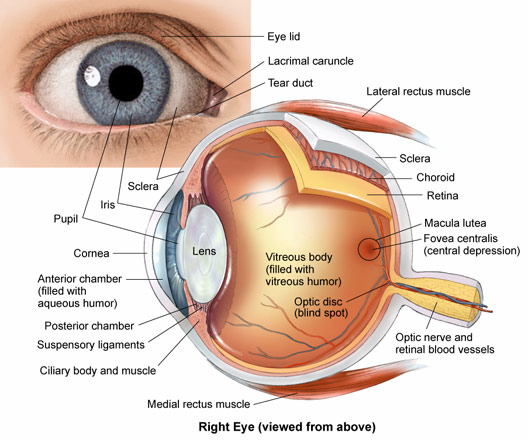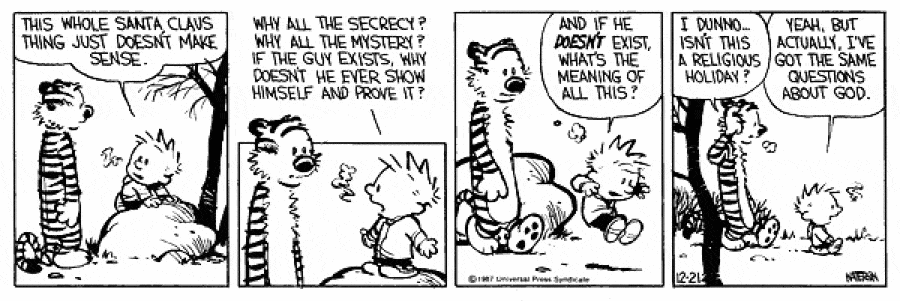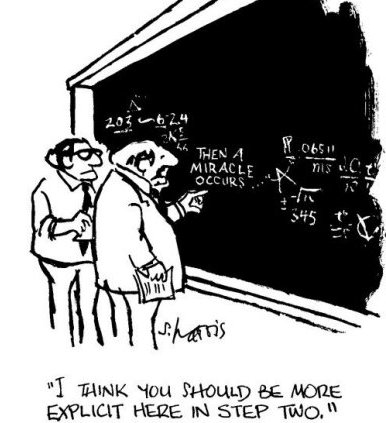I'm not sure I believe in God any more.
Ask me that same question twenty years ago, it would have been a stupefied "Of course I do!" Ten years ago, "Yes," but with a caveat. And now... "Meh."
I wouldn't call myself an atheist, however. To me that term has too militant a connotation. "Atheist" calls to mind Richard Dawkins, Ayn Rand - these absolutely certain thinkers, absolutely convinced they are absolutely right; trying just as hard as evangelicals to convert others to their way of thinking. The evangelicals, of course, absolutely know without a doubt that which by its very nature cannot be known. Then there's little old me - the guy who knows absolutely nothing.
What happened?
I grew up in a pretty religious household. We went to church just about every Sunday. I was in a Bible camp almost every summer. I've read the entire Bible, some passages several times. It was a common practice for a public prayer before any major family gathering or meal. The question of God's existence was so easy to answer it wasn't even worth asking. Like I said, it was a pretty religious home.
But we weren't an evangelical family. My mother, for instance, did not have real stringent ties to a particular denomination. She admits that her family changed churches with some frequency when she was young to try and keep it "fun." Neither of my parents saw the need for mission trips ("Why do you need to go on a vacation when there are plenty of people to help right here?"). Similarly, they both agreed that while it was important to have God in your life, it was fruitless to try and force it on somebody. So when I started working every Sunday as a teenager, they did not mind, nor did they think it automatically would impact my spiritual life. (Not to say that it did - my working on Sundays was more a matter of convenience and cooperation than personal spiritual issues.)
The thing is, I have always been a skeptical person by nature. I want answers. Real answers. So as I got older, I went looking. I sought out new and different perspectives; my friends and I had a weekly "philosophy club" where we would listen to music and debate the "Big Questions." I started questioning everything, even things that seemed obvious - even things I took for granted.
The obvious question, then, is how do we look at God in a scientific context? And that's the funny thing. You can't. By his very nature, God is metaphysical - he cannot be measured, observed, quantified, even in an indirect way. He is outside of science. So I find it both amusing and infuriating when so many people (from both sides of the issue) try so hard to shoehorn God into a scientific context. Deepak Chopra has duped millions of people for millions of dollars, but he's no scientist. He's a charlatan using scientific terminology to confuse and confound readers into thinking, "Well, he must be right, who else would use such funny words?" Compare any credible view on physics with his particular brand of physics, and there is no other conclusion you can come to. But I am getting off course...
The problem is when either field tries to step out of its frame of reference. You can't quantify the soul (in other words, use science religiously), and it's senseless to use scripture as a textbook (or, use religion scientifically). Religious texts are fables: they're morality tales meant to help you live your life in a positive way. They are not literal accounts. The point of Genesis, for instance, is not to give facts about the early universe, but to offer an explanation for the faulty, self-destructive nature of man. Think of it as a plot device: you ultimately want to tell readers that there is a way out of the negativity that plagues humanity, so you need to come up with a story that explains that we are faulty by nature. What better way than to suggest we've been like this since the beginning of the species? I don't mean for it to sound as though early church founders completely fabricated the story, just that it's a moral tale which fits into a much larger context. Genesis was written to define the origin of humanity, not the origin of species.
Numerous other examples abound, but that is not the point of this entry. No, I'm probing the very issue of God himself. And one thing which seemed so obvious to me but apparently was a point of contention for some is the notion of God's gender.
Not exactly what I wanted - but a nice sentiment nonetheless.
My thought was always that God had no gender because God had no body. He existed, but not in a corporeal sense. Gender terms were used so that we could relate on some level (how much harder would it be to have a relationship with God if the Bible used "it" instead of "him"?); and "he" was used to reflect the partriarchal leanings of society. Kevin Smith took a lot of flak for Dogma when his film suggested (among other things) that God was a woman. The key dialogue, though, was at the end of the film: the thirteenth apostle said, "You know, she's not really a woman. She's not really anything." To which the protagonist responds, "She's something all right." The idea was that God was not bound to a physical form, even in heaven, but chose one for our sake, so we might understand.
A couple other minor things: (1) The claim that the Bible does not contradict itself. Um, yes it does. And in very obvious ways, at times; which is no surprise considering the inordinant number of authors, languages, and years which span the writing (and subsequent compiling, followed by the subsequent editing, followed by the subsequent confirmation/canonization, and so on). That the Bible contradicts itself is not really an issue in and of itself, but it becomes a big deal when believers use such a claim to authenticate it. (2) The notion that the Bible is literal. I would hope this would have been put to bed simply through cursory scientific knowledge, or even through everyday experience, but it's hard to read the Bible in anything other than a figurative/metaphorical context. (Please check this out - it breaks things down very nicely.) That's how it is intended. I don't want to get into this too much because it's so obvious (and I don't want to seem combative), so I'll leave it at that.
I know, I know, the mind of God cannot be understood by the mind of man, the Lord works in mysterious ways, and all that... but if man were created in the image of God and endowed with reason and intelligence, you would think we could understand it in some way... or at least somebody could. But too many things happen which truly have no greater purpose; and that I cannot believe - not when God is all-knowing, all-powerful, and all-good.
What, then? If there is no God, what is the alternative? Most people say that a godless universe is a meaningless universe; that if you don't believe in God, you might as well kill yourself because life has no value. That, frankly, is ridiculous. God or no God, doesn't life intrinsically have value? Isn't it simply better to be than to not? I reject the notion that life loses meaning in a material universe. In fact, it seems just the opposite: if God exists and there is a heaven, then after death your existence may actually get better! And if God does not exist, then this world is all we have, and from that we can extrapolate the joy that comes from everyday pleasures.
Based on my experience - even in my youth, before witnessing true horror - if there is a God, he is strictly a creator. He is not involved in our lives in any sort of day-to-day capacity; he created everything, set things in motion, and that was that. This is the only God I can conceive of. That solves the Problem of Evil, indeed of all God-related issues. Because if he simply created everything and nothing more, then we truly are accountable for all of our own problems and successes. On the other hand, though, such a view makes prayer, praise - indeed just about all forms of ritual - essentially useless, except for the value they give to the participant. After all, if God is strictly a creator and not involved in daily life, what good does it do to seek his counsel... other than helping you psychologically? Just a thought.
One last issue I have - and this is related more to religion as a whole than to Christianity specifically - is the notion that without religion, there would be no morality. Without God, it is impossible to be a decent person, or something to that effect. That's rather presumptuous, don't you think? Never mind the idea that you have to be Christian to be a good person (that is a horribly arrogant assumption), but to say that you cannot be moral without religion? That just flies in the face of reason. Such a statement implies that nothing is inherently evil, but rather things are only evil if they are dogmatically so. Theft in and of itself is not wrong; it is wrong only because religion commands it so. I find it extremely problematic to believe that good and evil are relative. Is there no such thing as being good for goodness' sake? If consequences dictate a course of action, it doesn't matter what's right - it's only wrong if you get caught.
"You have knowledge, but you lack wisdom."
These were the pet words of one of my favorite pastors - a very gifted public speaker who simultaneously stalled and exacerbated my waning enthusiasm for religion. Such a paradox. He truly was a great speaker: genuinely excited to share his view and understanding of the Christian faith, a great sense of humor, and he was good at what he did. The problem, though, was that he eventually started getting political. And not in a faith-building sort of way - in a didactic, (frankly) combative sort of way. He literally told the congregation that they were not Christian if they voted for Al Gore. Years ago when a gay marriage bill was making its way through Missouri, he told the congregation it was their Christian duty to strike it down. (He trotted out that oft-heard line, "If men start marrying men, what's to stop men from marrying animals?") Such blatant polemic effectively ended my attendance. I can stomach a lot of things, but a pastor using his position to openly manipulate people is too much.
Since that sermon, I could probably count on one hand the number of times I've been to church, and that happened in 2004. I realize of course that a simpler solution would have been to just attend a different church, or maybe even seek out a new religion altogether, but that just seemed dishonest somehow. Patronizing. I don't want to go unless I actually want to be there. And right now, the only conclusion I've come to is that God might exist. If he does, then he is not involved in my life; if he doesn't, I wouldn't do anything differently. I refer to this as "apathetic agnosticism" - if he's there or not, my life would be the same. No better, no worse.
Additional disclaimer: Again, please realize that I am not decrying religion or Christianity in any way. Almost everyone I've ever known is very religious and genuine, and God plays a very important part in their lives. That's wonderful. Sincerely, it is.
This is not meant in any way to be an attack. They say "Write what you know," and this is something that's always been a big part of my life and weighed heavily on my mind. All I can do with this blog is create an open dialogue for whatever is going on with me and how I see the world. If you disagree with that viewpoint, you are more than welcome to disagree; I welcome it. But I cannot be dishonest about something like this, so I felt I had to share.






Jacob,
ReplyDeletethere are a million things I want to say to this. And honestly you are exactly the type of person I wish to talk to about these very topics. Not just a comment on your blog (which I have read many).
However to be concise, I agree with you completely.
I don't believe a God exists, however I cannot prove it so I really don't argue that point directly in these types of conversations. There are much better ways to make strong points about the topics surrounding that discussion rather than facing it directly.
Regardless, I always have great respect for anyone that posts something like this. In today's argumentative world, often times views like this are met with hostility.
If you ever desire to converse more on this, or any religious or political topic, do not hesitate.
Thanks for the comment, Alan. I debated for quite some time whether I should post this entry, but I finally did after deciding that any perceived hostility is made up for by sheer earnestness.
ReplyDeleteI don't get into "heavy" topics very often (for reasons you already mentioned), but I always value good conversation. If you haven't already, you should check out my entirely political entry from a couple weeks ago - "A Little to the Left." Not trying to shamelessly plug myself, but it sums up my political views as best I can; and if you like those topics, it ill give you my perspective.
Take care, and I hope you keep reading!